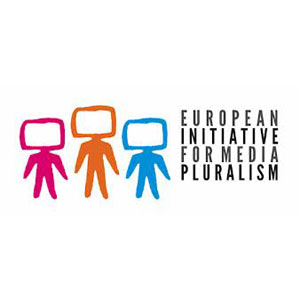by Amy O’Donoghue
Since the publication of the intelligence files leaked by Edward Snowden and the subsequent public debate on the role of mass surveillance, a growing international response has emerged in opposition to the actions of the UK government in its attempt to silence the leaks.
Frank La Rue, the UN special rapporteur on freedom of expression, has last week joined the ranks of those voicing alarm over the government’s response which, he argues, ‘is doing serious damage to the UK’s international reputation for investigative journalism and press freedom’.
La Rue’s comments highlight the risk to press freedom posed by the political reaction of the UK government to the Guardian’s publication of leaks which exposed the mass surveillance of the US and UK intelligence agencies, the NSA and GCHQ.
‘I have been absolutely shocked about the way the Guardian has been treated, from the idea of prosecution to the fact that some members of parliament even called it treason’. The government’s response, La Rue told the Guardian, is ‘unacceptable in a democratic society’.
The government has put sustained pressure on the Guardian since the publication of the leaks began in June. In a veiled threat to the paper, David Cameron has commented that, ‘I think it’s much better to appeal to newspapers’ sense of social responsibility. But if they don’t demonstrate some social responsibility it would be very difficult for government to stand back and not to act’.
Guardian editor, Alan Rusbridger, has since been summoned to appear before the home affairs select committee to be questioned by MPs concerning the paper’s handling of the leaked files, and Scotland Yard has ‘assigned a squad of detectives to investigate the role of the Guardian newspaper in the Snowden affair’.
Individual journalists have also been targeted. David Miranda, partner of journalist Glenn Greenwald, who has worked with newspapers to publish the Snowden files, was detained at Heathrow airport while travelling to Brazil with encrypted intelligence files. Miranda was held and questioned under Schedule 7 of the Terrorism Act for nine hours and his mobile phone and computer equipment were confiscated. Miranda, whose travel was paid for by the Guardian, was returning from a visit to Berlin-based US film-maker Laura Poitras, who has also been involved in the release of the Snowden leaks. The basis for Miranda’s detention, the Metropolitan Police have stated, is that he was considered to be promoting a ‘political or ideological cause’.
Citing Miranda’s treatment, Reporters Without Borders last week called for assurances from the UK government that British journalist and Wikileaks editor Sarah Harrison ‘can return to her country safely’. ‘David Miranda’s detention at Heathrow Airport in August under the Terrorism Act and the nine-hour interrogation that ensued have given us an idea of the welcome that could await Sarah Harrison in Britain’ the organisation said.
The recent actions on the part of the UK government, which serve to create a climate of fear and insecurity for journalists, must be viewed as a direct attack on the freedom of the press and journalists’ ability to operate freely. As a New York Times editorial of 14 November, argued, ‘These alarming developments threaten the ability of British journalists to do their jobs effectively’.
All those committed to media pluralism must defend the ability of investigative journalists to bring to light government secrets for the purpose of public debate and accountability. The UK government’s attacks on journalists and editors for political purposes are undermining the role of a free press and its ability to hold power to account. This must not be allowed to continue.
 Sign the European Initiative for Media Pluralism, demanding that EU institutions monitor and safeguard media pluralism across Europe.
For more information on the European Initiative for Media Pluralism, in the UK, please email amy@mediareform.org.uk.
Sign the European Initiative for Media Pluralism, demanding that EU institutions monitor and safeguard media pluralism across Europe.
For more information on the European Initiative for Media Pluralism, in the UK, please email amy@mediareform.org.uk.
 Sign the European Initiative for Media Pluralism, demanding that EU institutions monitor and safeguard media pluralism across Europe.
For more information on the European Initiative for Media Pluralism, in the UK, please email amy@mediareform.org.uk.
Sign the European Initiative for Media Pluralism, demanding that EU institutions monitor and safeguard media pluralism across Europe.
For more information on the European Initiative for Media Pluralism, in the UK, please email amy@mediareform.org.uk.

